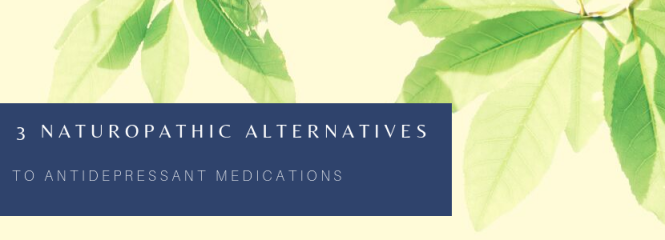

Supplementing for mood is gaining traction as individuals explore natural ways to address emotional well-being, bypassing traditional antidepressant medication. Imagine a world where you could potentially enhance your mood without relying solely on pharmaceutical interventions. This exploration into natural remedies offers a compelling alternative, and in this comprehensive guide, we’ll delve into the potential benefits and considerations surrounding this approach. We’ll cover a range of options, from dietary changes and lifestyle adjustments to herbal supplements, and delve into the scientific evidence behind them. We’ll address questions about safety, efficacy, and when supplementation might complement or conflict with conventional medical care. We’ll also touch on supporting mental health holistically.
Dietary Influences on Mood
Unveiling the Link Between Nutrition and Emotional Well-being
Numerous studies show a strong correlation between dietary choices and mood. A balanced diet rich in essential nutrients can contribute significantly to maintaining emotional equilibrium. For example, omega-3 fatty acids, abundant in fatty fish like salmon and mackerel, are associated with reduced symptoms of depression and anxiety. Conversely, processed foods, excessive sugar intake, and insufficient intake of fruits and vegetables can negatively impact mood. Studies indicate that individuals with diets rich in whole foods experience fewer mood fluctuations.
Practical Dietary Recommendations for Mood Enhancement
Incorporating specific nutrient-rich foods into your diet can have profound effects. Aim for a balanced intake of fruits, vegetables, lean proteins, and whole grains. Consider incorporating foods rich in magnesium, such as leafy greens and nuts, as magnesium deficiency has been linked to mood disorders. Prioritize foods rich in B vitamins, which play a crucial role in neurotransmitter production and mood regulation.
Herbal Remedies for Mood Enhancement
Exploring the Potential of Natural Botanicals
Herbal remedies have a long history of use in traditional medicine for various ailments, including mood regulation. Many herbs possess compounds that interact with the nervous system, potentially influencing mood and stress response. For example, St. John’s Wort, a popular herbal remedy, has shown promise in alleviating mild to moderate depression, although further research is necessary for confirmation and detailed understanding. However, it’s crucial to approach these remedies with caution and seek professional advice before incorporating them into your treatment plan.
Cautions and Considerations with Herbal Remedies
Herbal remedies aren’t without potential side effects. Some herbs can interact with prescribed medications, leading to adverse reactions. Therefore, it’s essential to consult with your doctor before incorporating any new herbal remedies into your routine. Furthermore, herbal supplements aren’t regulated as strictly as pharmaceuticals; therefore, it is crucial to purchase from reputable sources.
Lifestyle Practices for Mood Support
The Interplay of Lifestyle and Emotional Well-being
Numerous lifestyle choices can significantly impact mood and mental health. Adequate sleep, regular exercise, and stress management techniques play crucial roles. For example, regular physical activity releases endorphins, natural mood boosters, while mindfulness and meditation practices can help manage stress and promote emotional well-being.
Specific Lifestyle Strategies for Mood Improvement
Regular exercise, ideally 30 minutes most days of the week, can positively influence mood and reduce symptoms of depression. Consistent sleep patterns (7-9 hours per night) are critical for maintaining emotional stability and overall health. Stress reduction techniques, such as yoga or meditation, can significantly help manage stress levels and enhance mood regulation.
The Role of Supplementation in Mood Regulation
Exploring the Potential of Specific Supplements
Certain nutrients and supplements can play a role in supporting mood regulation. For example, Vitamin D deficiency has been linked to mood disorders. Supplementing with Vitamin D may alleviate symptoms. However, it’s crucial to note that supplementation alone is rarely a sufficient solution for severe mood disorders and should be part of a comprehensive wellness approach.
Supplementation Considerations and Safety Guidelines
Consulting your doctor is essential before introducing any supplement into your regimen, particularly if you have underlying health conditions or are already taking medications. Always choose reputable brands and ensure products adhere to quality standards. Be mindful that supplements are not always rigorously tested and regulated like pharmaceutical drugs.
The Importance of Professional Guidance
Seeking Support from Healthcare Professionals
While supplementing for mood can offer potential benefits, it’s crucial to remember that professional guidance is essential. Consulting a psychiatrist or psychologist can provide valuable insights and personalized treatment plans, especially for individuals experiencing severe mood fluctuations or mental health challenges.
Addressing the Need for Personalized Care
Identifying the underlying causes of mood issues is crucial to effective treatment. Healthcare professionals can diagnose potential conditions, whether they are related to diet, lifestyle, or underlying psychological factors. Treatment plans should be tailored to individual needs, taking into account unique circumstances and preferences. It’s vital to prioritize mental well-being and to seek the counsel of qualified mental health professionals for support.
Combining Natural and Conventional Approaches
Integrative Healthcare Strategies
The most effective approach often involves combining natural strategies with conventional treatments. Integrating dietary changes, lifestyle modifications, and herbal remedies into a holistic treatment plan under the guidance of a healthcare professional can often lead to optimal outcomes. For severe mood disorders, a comprehensive approach including both natural remedies and professional medical support is ideal.
Recognizing the Limitations of Natural Supplements
Understanding the Role of Professional Guidance
Natural supplements and remedies offer potential benefits for emotional well-being; however, they should never replace the guidance of a qualified mental health professional or physician. For those with severe or chronic mood disorders, working closely with a healthcare professional is paramount for addressing underlying causes and developing a comprehensive treatment plan.
The Importance of Regular Monitoring
Tracking Progress and Making Adjustments
Consistent monitoring is essential when using natural supplements. Tracking symptoms, mood changes, and any potential side effects allows adjustments to be made to the treatment plan as needed. Open communication with your doctor is crucial throughout the process.
Addressing the Individual Needs of Users
Tailoring Approaches for Optimal Results
Consideration of individual factors, like lifestyle and medical history, is crucial. Supplements may need to be adapted based on the unique needs of the user. Seeking advice from qualified health professionals is key for personalized guidance.
Frequently Asked Questions
Can supplementing for mood completely replace antidepressants?
Supplementing for mood can offer supportive benefits but isn’t a replacement for prescribed antidepressants, especially in cases of severe depression. It should ideally be considered a complementary approach to mental health care. Consulting a psychiatrist or psychologist is vital for comprehensive diagnosis and treatment planning. The best approach to supplementing for mood involves collaboration with a mental health professional to integrate it into a comprehensive wellness plan.
What are the potential risks associated with using natural supplements for mood enhancement?
Some natural supplements may interact with prescription medications or have unforeseen side effects. Always consult with your doctor or pharmacist before starting any supplement regimen, especially if you are already taking other medications. A healthcare provider can assess potential interactions and determine whether supplementing is suitable for you.
What is the role of diet in maintaining emotional well-being?
Nutrition plays a key role in regulating mood and overall mental well-being. A balanced diet rich in essential nutrients, including omega-3 fatty acids, magnesium, and B vitamins, can help in maintaining emotional equilibrium. A diet deficient in crucial nutrients can disrupt mood regulation and lead to instability.
In conclusion, supplementing for mood offers a promising avenue for individuals seeking natural alternatives to traditional antidepressants. By exploring various natural remedies, from dietary changes to herbal supplements, you can potentially enhance your emotional well-being and find holistic solutions. Remember, this approach should be considered alongside professional medical advice. Consult your doctor before making any significant dietary or supplementation changes, especially if you are already taking medications. This will ensure that the supplementation complements your overall health plan effectively.